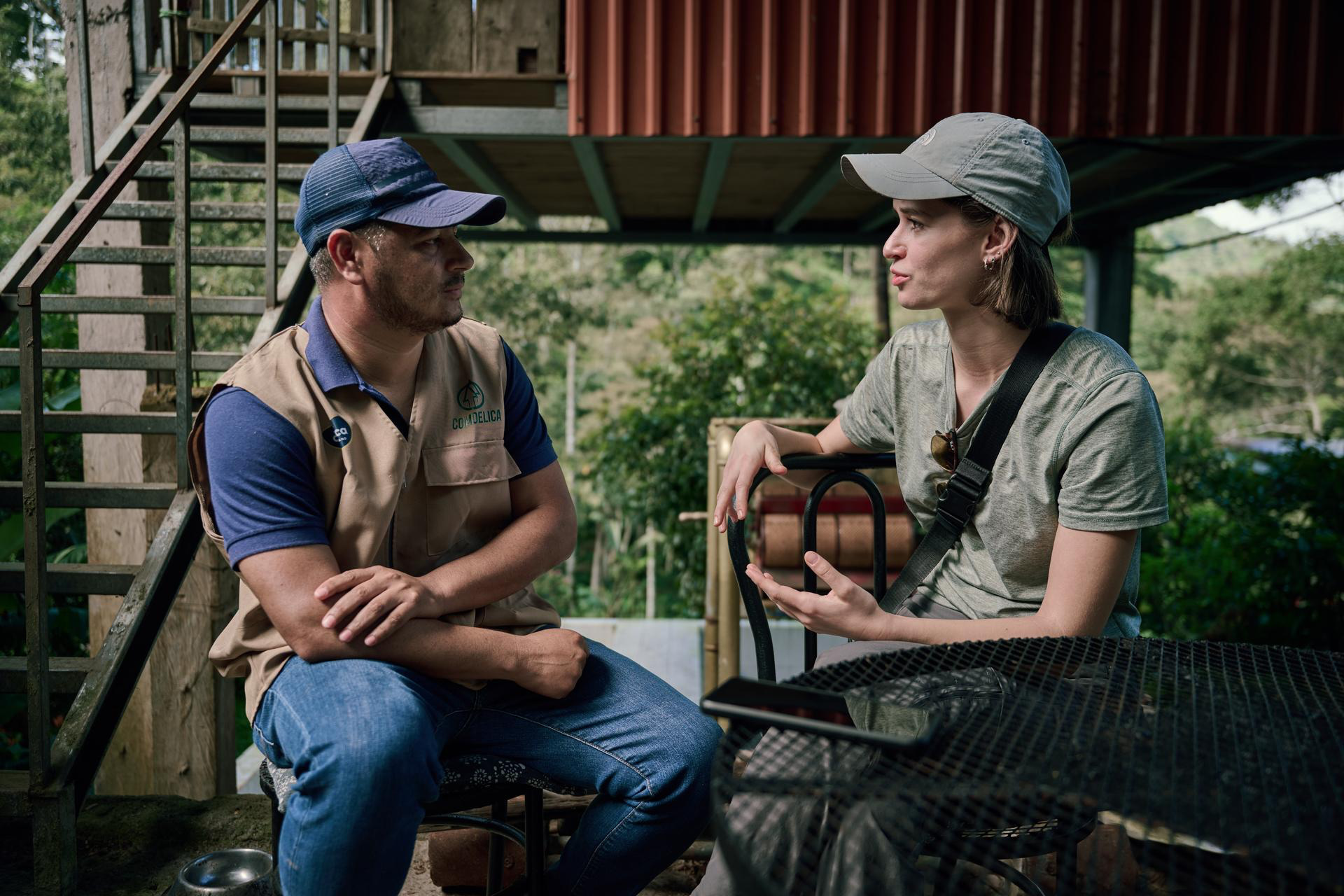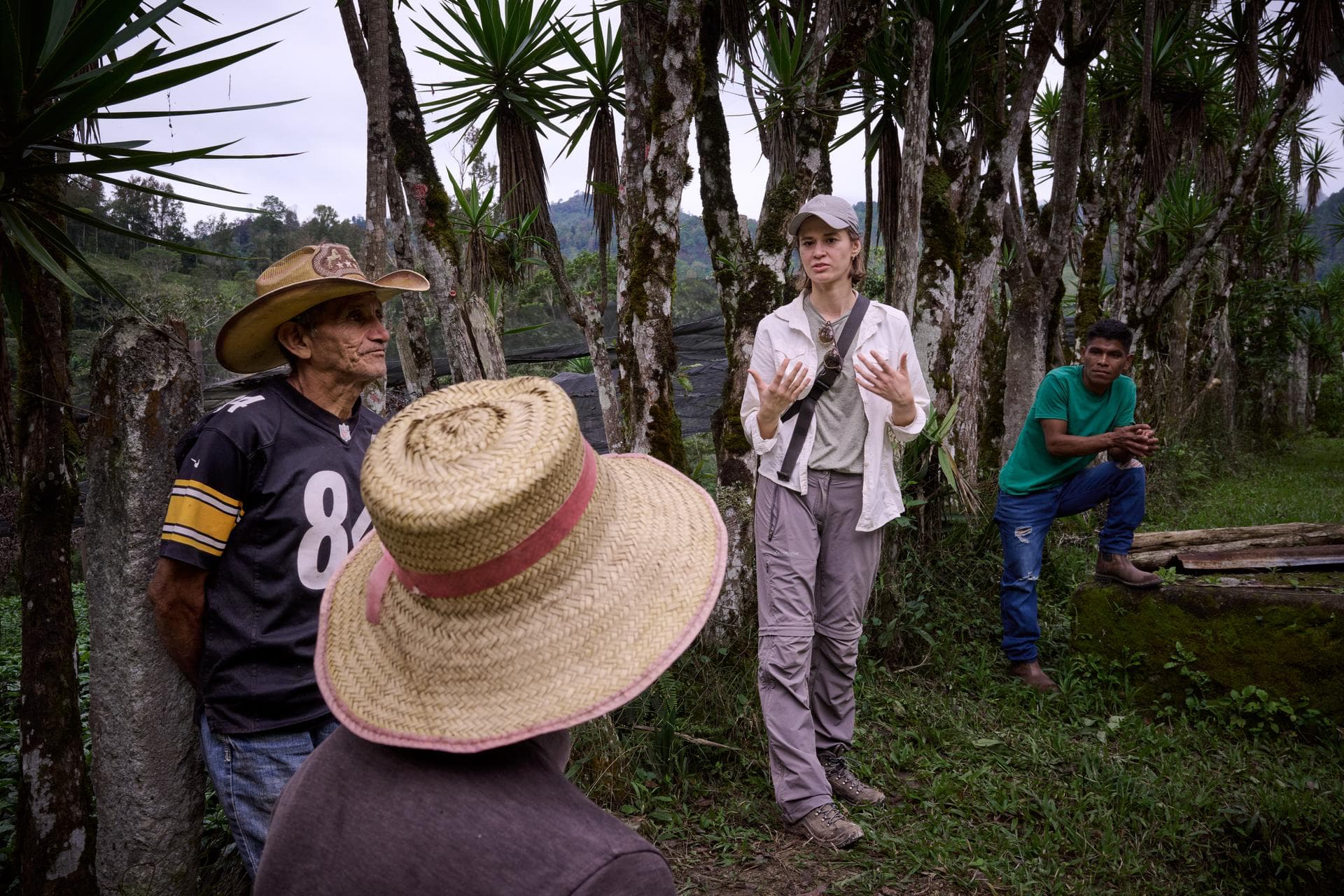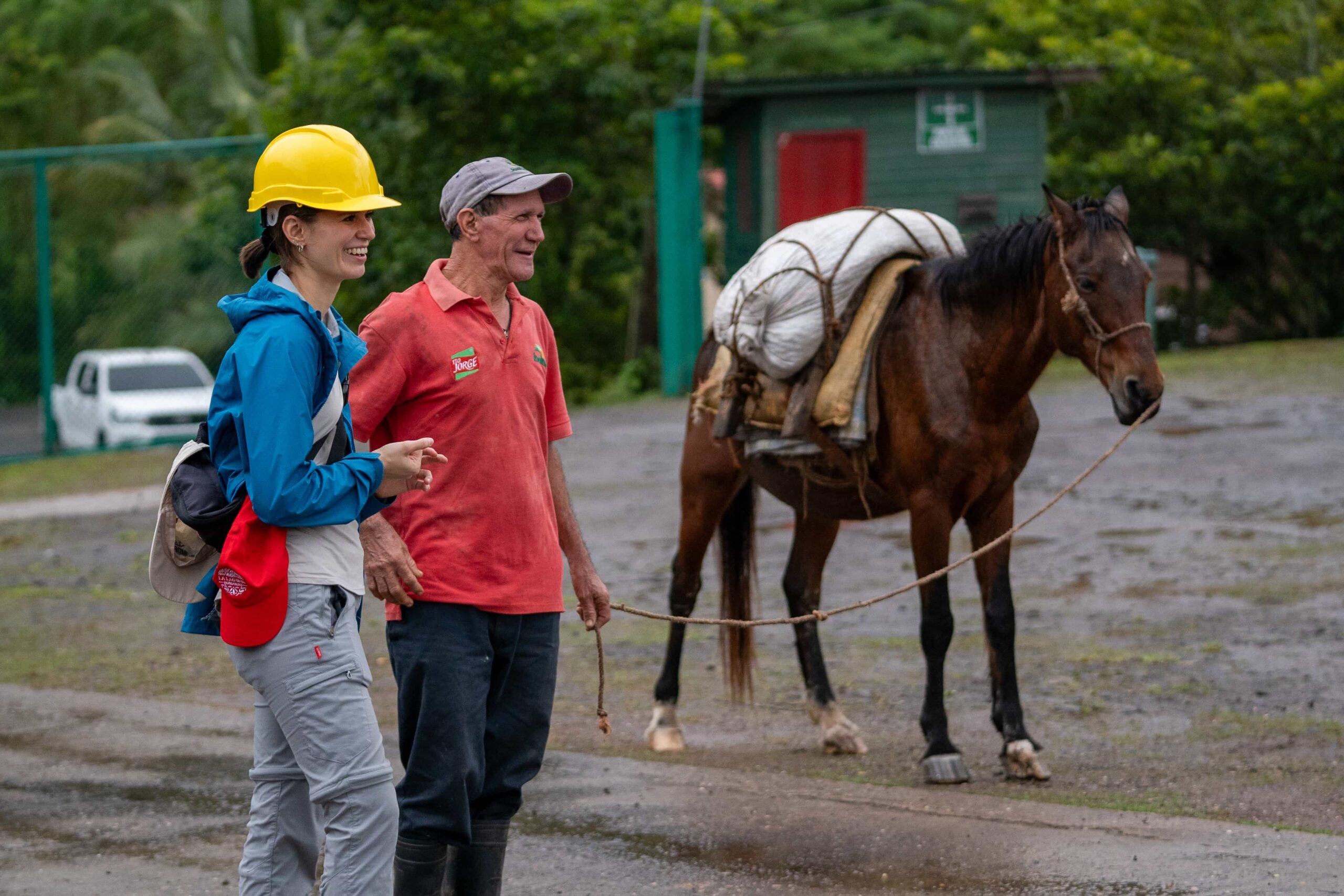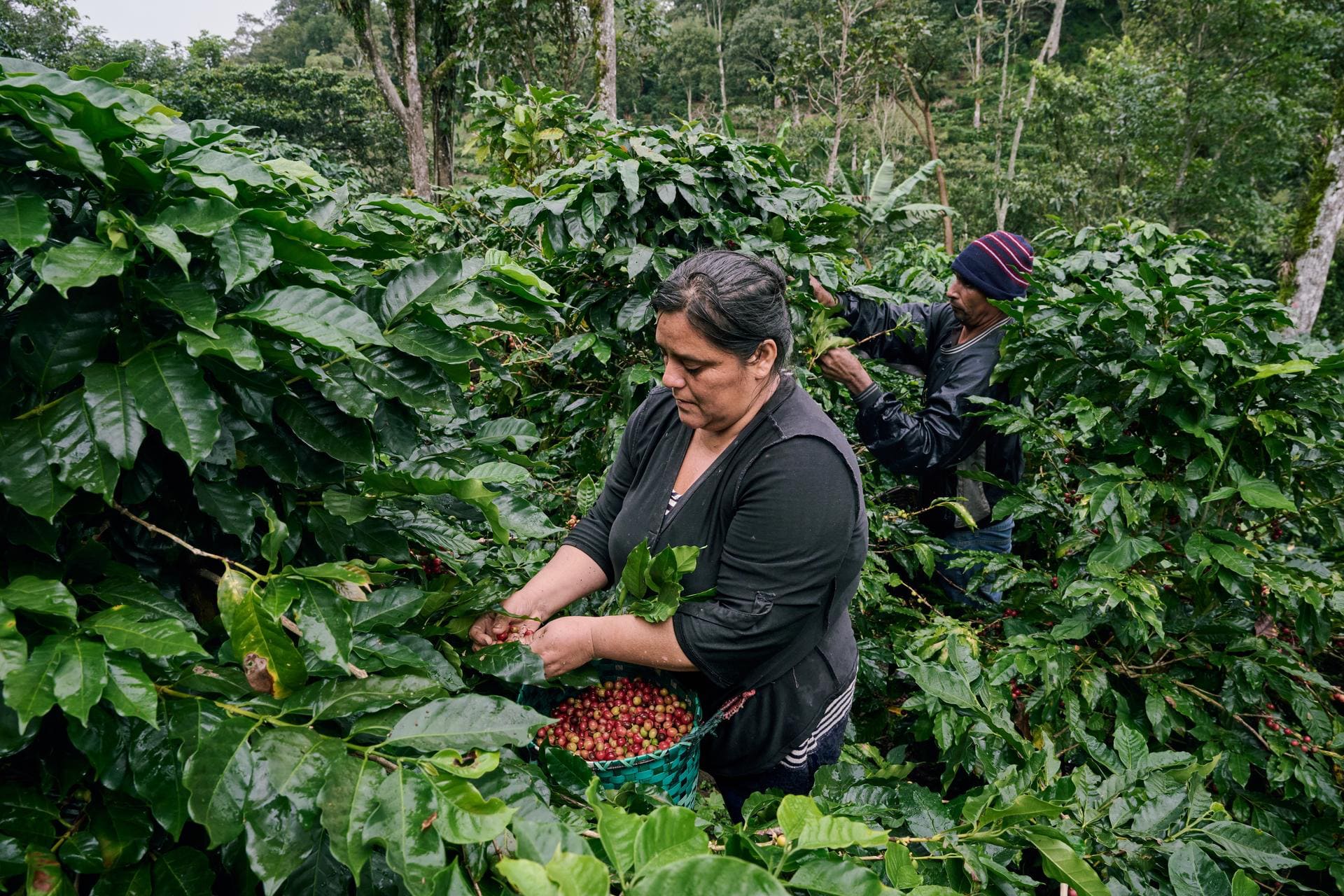Driving Sustainability in the Coffee Industry
Sarah Sot, Head of Sustainability at Delica, shares how leadership integration, farmer partnerships and transparency are transforming coffee supply chains and impacting communities.

Photo Courtesy of Delica
Safar: Sarah Sot, what is your role as the Head of Sustainability at Delica?
Sarah Sot: I am responsible for ensuring that we embrace our corporate social responsibility and position ourselves for a sustainable future. From cultivation to sourcing and production to sales, my work focuses on addressing environmental challenges, promoting social justice, managing waste and tackling the impacts of climate change. As a leader, it is my role to maintain a clear overview, identifying the most significant sustainability risks and opportunities we aim to address. This is achieved in close collaboration with the executive management team and many sustainability colleagues within the Migros Group.
What have your contributions been since you joined in August 2023?
Since joining Delica, one of the major changes I’ve contributed to is integrating sustainability into leadership levels. We now report directly to the CEO and interact intensely with C-level management, which I recommend to all companies. By involving management, sustainability becomes a priority, showing that our business cannot succeed without it. While there are risks and associated costs, we see them as opportunities.

Photo Courtesy of Delica
What kind of partnerships does Delica have with coffee producing countries like Brazil, Peru and Honduras?
Delica has a broad supply chain in coffee. We’re present in different countries, but we currently focus on three countries in Latin America, namely Honduras, Peru and Brazil, where we have our so-called impact partnerships. Our vision is to expand these types of partnerships and work more directly with producers across our global value chains.
What is an impact partnership?
An impact partnership aims to foster closer collaboration with coffee farmers. We focus on improving coffee quality and integrating sustainability to address both risks and opportunities. A few years ago, our CEO and colleagues identified Honduras as a key partner for this, given its economic challenges and our significant coffee sourcing there. This partnership addresses pressing needs and aims to make a meaningful impact on the community.
How is your coffee business certified?
Most of our coffee is certified through Rainforest Alliance, Fairtrade or Fairtrade Organic. A small portion remains non-certified, but we are working on switching to 100% certified until the end of 2025.
What is the difference between certified and non-certified coffee?
Certification means an organization adheres to sustainability standards for social and environmental criteria set by a third-party, such as Fairtrade, including audits. Consumers typically see this through the labels on the packaging. While maintaining a high certification standard, we’ve also switched to some certification systems to look deeper into the supply chain. We wanted to go beyond third-party standards, taking a hands-on approach to better understand our work in Latin America.

Photo Courtesy of Delica
What do you do when you visit the farms?
Our approach is very hands-on. Through our impact program, we invest 50 Rappen for every 500 grams of coffee sold in Switzerland – the Fairtrade Premium and an additional Impact Premium. For every kilogram of roasted coffee, we contribute one franc directly to the coffee’s origin. Over the past four years, more than 2 million francs have been generated on top of the Fairtrade Premium for projects in the coffee-producing regions. We directly fund initiatives like a medical clinic in Honduras, ensuring the money goes to the community.
How does Delica ensure ethical operations from afar?
We track the impact of every sale through our accounting system. In addition to virtually interacting with the workers, we visit the farms at least once a year for up to 10 days, checking in on the projects, speaking with the producers and addressing any needs they have. We also identify areas where we can invest, such as in machinery, to help reduce their costs and therefore increase income.
Have you seen the impact of transparency on consumers?
When we started working with farmers in 2016, it wasn’t linked to marketing or a specific product – people bought our coffee without knowing they were contributing to a good cause. We wanted to engage consumers better and allow them to contribute directly to specific farmers and countries. Now, our packaging features the farmers’ faces and tells their stories, showing consumers where their money goes. Every purchase supports farmers and producers. This approach has resonated well, and several Swiss consumers have even visited the farms on their own by tracking down producers from the back of the packaging.
Why is transparency important in your opinion?
Transparency is crucial because farmers, especially in the coffee industry, are often marginalized and lack access to information. Many new farmers don’t even know the value of their coffee. By being transparent, we empower them to seek better deals and communicate their needs. This openness builds trust, empowers farmers and helps establish long-term relationships.
What are the biggest challenges in maintaining transparency and this workflow?
A major challenge is the volatility of coffee prices, which complicates the supply chain. Certifications guarantee farmers a price, but there is often a price gap between certified sustainable coffee and cheaper alternatives. Many consumers care about sustainability but are also price sensitive. While certifications can help consumers find products that invest in sustainability, there is also doubt about certifications and their impact. With economic challenges in the last years, consumers have become even more sceptical and price sensitive.

Photo Courtesy of Delica
Why is there doubt about certified products?
Consumers often question whether certified products truly benefit the farmers, unsure if the money actually reaches the intended recipients. That’s why we promote transparency – by connecting the supply chain and sharing the story of where the money goes.
How do you see the future of sustainability in the food and beverage industry?
Despite inflation and the focus on economic aspects, sustainability, climate change and human rights are still important issues. The challenge is bridging the gap between consumer attitudes and action. Our goal is to make it easier for consumers to understand sustainability and take action. As regulations tighten in the EU and Switzerland, sustainability will become more standardized, making it easier for companies to implement and for consumers to understand.
Discover more about Delica at:
delica.com
